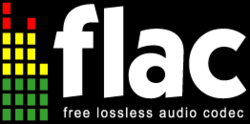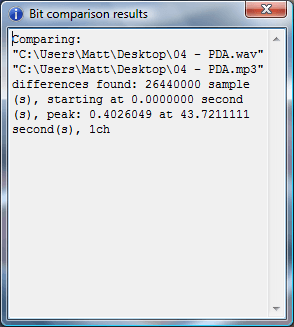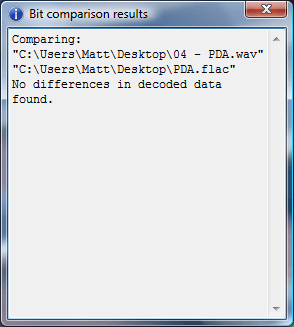- Qualcomm Launches Snapdragon 4 Gen 2 Mobile Platform
- AMD Launches Ryzen PRO 7000 Series Mobile & Desktop Platform
- Intel Launches Sleek Single-Slot Arc Pro A60 Workstation Graphics Card
- NVIDIA Announces Latest Ada Lovelace Additions: GeForce RTX 4060 Ti & RTX 4060
- Maxon Redshift With AMD Radeon GPU Rendering Support Now Available
Audio Archiving Guide: Part 1 – Music Formats

Have a large music collection just waiting to be archived? We’re here to help! In this three-part series, we’ll be tackling all there is to know about properly building your collection, from choosing the right codec, to ripping, to archiving. In this first article, we’ll take the frustration out of finding the perfect codec – one that fits your style, and needs.
Page 2 – Less Common Formats, Lossy vs. Lossless
Vorbis (sometimes commonly referred to as OGG Vorbis) is a fully-open source, royalty-free format managed by the Xiph.org foundation. Even though the audio quality supplied by the encoder is viewed as superior to MP3 and many other codecs, hardware makers have yet to embrace the format with the exception of some iRiver, Samsung, Cowon and other devices, and neither Microsoft or Apple have shown interest in including support for the codec.
There are some additional advantages and disadvantages to using Vorbis. Because the technology is open, anyone is free to use it under the GNU Public license. Listening tests have also come to the conclusion that Vorbis offers better quality than WMA and AAC at lower bitrates of 48 to 64 kbit/s.
Though some listeners believe they can hear an apparent difference at bitrates of 128 kbit/s and higher, many cannot. With the format’s open nature, many forked projects have appeared, including aoTuV, Tremor, and FFmpeg, which may intimidate potential users with the sheer amount of options and potential compatibility issues.

Like Vorbis, FLAC is another free, open source format. It was brought under the Xiph.org umbrella of codecs in 2003 and is given away under the same GNU Public License. However, unlike the format’s distant cousin, FLAC is a lossless codec and works differently than the formats listed above.
FLAC does have more support with hardware than Vorbis, with noticeable mentions being iRiver, Cowon, Squeezebox, and Sonos, but because of the increased file size (we will go into more detail later) the practicality of using such a format on a portable device isn’t likely for most people with sizable collections.

Monkey’s Audio is another free lossless codec created primarily for the Windows platform. It offers far less compatibility (which is considered its main downside) than its main competitor, FLAC, but it does have a higher compression rate, and subsequently, smaller file sizes. Unfortunately, some questions have been raised about the format’s licensing agreement, which has prevented it from being included in GPL projects.
Finally, Apple Lossless (ALAC), as the name suggests, is a codec created by Apple. Even though it is used in the MP4 container (with a .m4a extension), it is more akin to FLAC than the company’s widely-used AAC codec. Originally released in 2004 as a new feature of iTunes 4.5, the codec is undocumented by Apple, so it cannot be officially decoded or encoded by a third party. However, an open source decoder was created by two software engineers in 2005, and dBpoweramp has released a reverse-engineered encoder.
Hardware support is officially limited to Apple’s iPod and iPhone, but Cowon does offer a ALAC support on the popular A3 PMP. Because of the closed nature of the format, it isn’t as widely used as other alternatives, but it does have a 40% to 60% compression rate, which means it can perform better than more popular codecs in some cases.
Finally, Microsoft’s WMA Lossless derivative provides another option that integrates directly with Microsoft’s Windows Media Player and Zune software. It doesn’t have much hardware support, which is mainly limited to Toshiba V and S line of MP3 players and the company’s own Zune player (4, 8, 16, 80 and 120 models), but the compatibility with Microsoft’s media players, including Media Center, make it viable for some people.
Lossy vs. Lossless
The “lossy” codecs differ from formats like FLAC, ALAC, Monkey’s Audio and WMA Lossless in a few key ways. For example, all lossless formats contain the same exact quality of the originating files, compared to codecs such as MP3, AAC and Vorbis which remove quality to make the file size smaller. This means that lossless codecs can be converted to other lossless formats without a hit on quality, but an MP3 file will lose quality with every subsequent conversion.


Left: WAV file ripped from CD, MP3 encoded at 128 kbit/s using LAME
Right: WAV file ripped from CD, FLAC file encoded at compression level 8
Lossless formats work in a similar fashion as .zip files. The audio can be compressed to a smaller file size, but all of the information is still intact. In spite of this, lossless files, even highly compressed ones, take up a lot of space compared to a lossy file, even at a higher data rate. For some people with limited storage, using lossless codecs would be a practical impossibility because they are able to store much less than they normally would.
To better show the differences between both FLAC and high-quality MP3, we calculated the total sum of our music collection, which we keep in both FLAC and 320 kbit/s MP3 formats. Included are 6,516 tracks from 412 albums:
FLAC (Compression Level 6): 172 GB
MP3 (LAME 320 kbit/s): 58 GB
Aside from that, lossless files typically have a higher requirement for CPU processing. Although most older machines should have no problem playing most formats, a machine that’s multitasking resource-intensive applications might have trouble handling the load and preserving the playback quality (i.e., there could be increased noise or stuttering playback).
Using lossless formats on portable devices may be a concern for two reasons. First, the increased size could prevent users with more exhaustive libraries from storing larger portions of their collections on the device. Second, the files could drain the battery faster because the music has to be cached in memory more often, forcing the device go back and forth between collecting and caching the data. Some lossless decoders could be less efficient as well, but this limitation is on a per device basis, and may not apply to you.
Support our efforts! With ad revenue at an all-time low for written websites, we're relying more than ever on reader support to help us continue putting so much effort into this type of content. You can support us by becoming a Patron, or by using our Amazon shopping affiliate links listed through our articles. Thanks for your support!




